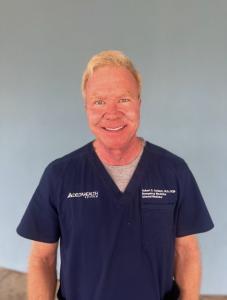Emergency Medicine vs. Internal Medicine: Key Differences Explained by Dr. Robert Corkern
Emergency Medicine vs. Internal Medicine: Key Differences Explained by Dr. Robert Corkern
Blog Article

As it pertains to healthcare, many people often confuse crisis medicine with internal medicine. Equally are important branches of medication, nevertheless they offer different jobs in patient care. Dr Robert Corkern Mississippi, a well-known medical specialist, explains the important thing variations between those two specialties, shedding light on their own stresses and how each plays a role in patient health. Knowledge the variation between disaster medication and inner medicine can help patients greater understand their healthcare needs and produce informed decisions.
The Focus of Emergency Medication
Disaster medication is made to offer quick, intense care for people facing urgent or deadly conditions. Disaster physicians perform in hospitals' disaster sections (EDs), wherever they're the first level of contact for individuals experiencing severe accidents, strokes, center attacks, and other medical emergencies. Dr. Corkern emphasizes that emergency medicine is all about stabilization and rapid decision-making. Emergency physicians are qualified to take care of a wide range of medical conditions, frequently with no reveal medical history of the individual, and should produce rapid judgments centered on restricted information.
The primary aim of emergency medication is to avoid further damage, secure the in-patient, and initiate the appropriate interventions. From stress attention to controlling center attacks or shots, disaster physicians are authorities in managing acute symptoms and providing life-saving treatments in high-pressure environments.
The Role of Central Medication
On the other hand, internal medicine focuses on detecting and controlling serious conditions and problems that affect people, such as for example diabetes, hypertension, and center disease. Inner medication specialists, or internists, assist patients over a lengthy time, giving detailed attention and reduction strategies. Dr. Corkern describes that inner medicine is mainly worried about the whole-body administration of non-emergency medical issues. Internists frequently offer as main care health practitioners, managing routine check-ups, managing continuing therapies, and coordinating take care of patients with complex, long-term health issues.
While crisis physicians treat quick problems, internists take a more holistic and long-term method of patient health. They frequently perform strongly with specialists in places like cardiology, pulmonology, and nephrology to control serious conditions and make sure that patients obtain matched take care of numerous wellness concerns.
Instruction and Approach to Attention
Dr. Corkern highlights the differences in the training necessary for equally fields. Disaster medication involves physicians to be equipped for a wide spectrum of problems that will involve quick, life-saving interventions. Crisis doctors are trained to control trauma, critical illness, and intense exacerbations of chronic conditions. This teaching requires a heavy give attention to acute care and sophisticated life-saving techniques, usually in high-stress environments.
On another hand, inner medication physicians undergo extensive education in the elimination, diagnosis, and treatment of chronic conditions. They concentrate on giving long-term treatment, frequently managing a patient's medical history and corresponding with different specialists. The internist's method is patient-centered, with an increased exposure of long-term health preservation and disease prevention.
When to Seek Emergency Medication or Internal Medicine
Knowing when to seek emergency medicine versus central medication can make most of the huge difference in the rate and form of treatment someone receives. If you're experiencing a medical crisis, such as for example significant chest pain, difficulty breathing, or quick loss in consciousness, the emergency room is the proper destination for a go. But, for continuing health problems, serious illness administration, or overall health preservation, an internal medication consultant is normally the most effective level of contact.
Conclusion:
Both crisis medicine and central medicine play critical roles in patient care, but their strategies, emphasis areas, and instruction change significantly. Dr Robert Corkern's description provides quality on how these specialties purpose and when each is many relevant. By knowledge the distinctions, people may greater understand their healthcare wants and guarantee they are seeking the right kind of attention at the right time. Whether facing an emergency or controlling a persistent situation, both specialists are essential in sustaining and increasing health.
Report this page